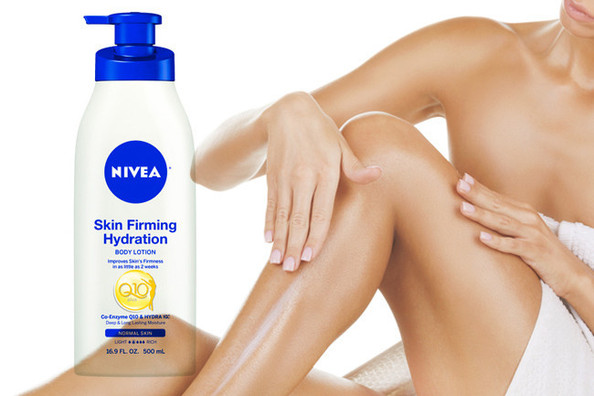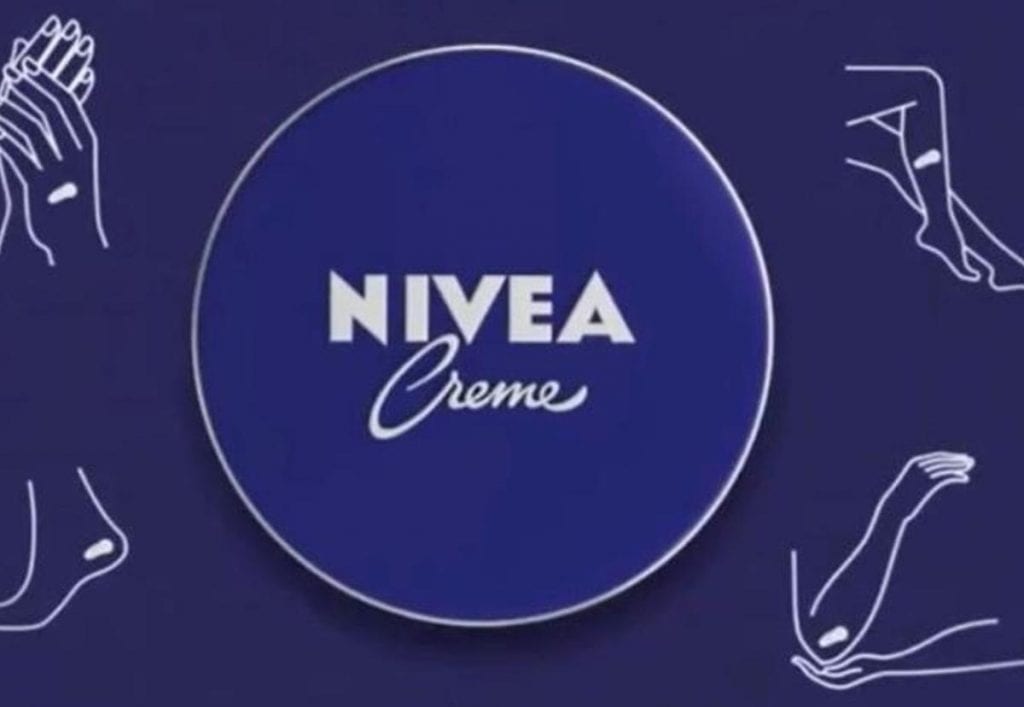Among Nivea’s lineup of skincare and body care products is a body lotion that promises to work wonders. For less than $10, Nivea’s Skin Firming Hydration Body Lotion consists of Hydra-IQ, the German personal care brand’s “exclusive technology that supports skin’s own hydration network to unleash deep, non-stop moisture that lasts more than 24 hours.” More than merely moisturizing skin, the drug store-sold lotion boasts about the power of its “enriched formula [to] firm and improve” the “elasticity” of the user’s skin “in as little as 2 weeks.”
Skincare and cosmetics companies are well-known for promising big results for everything from their buzzy acid-soaked skin creams to trendy plant extract-formulated face masks, and oftentimes, jacking up the prices in connection with such lofty promises. In most cases (and save for some exceptions, of course), these claims go without legal intervention, being deemed “puffery,” and thus, not objective, actionable statements with a basis to challenge in court.
However, Nivea and its Skin Firming Hydration Body Lotion did not fall into that camp. Thanks to the company’s claims that the lotion has the power to create “firmer, more toned skin” in weeks, Nivea’s seemingly innocuous product proved to be more than merely the latest example of a cosmetics/skincare brand pushing the envelope a bit too far in terms of the potential effectiveness of its products. In fact, Nivea’s lotion would give rise to a years-long class action lawsuit, one that customer Ashley Franz filed not long after purchasing the product, herself.
According to her complaint, which was filed with the U.S. District Court for the Southern District of California in September 2014, Franz argued that because Nivea’s Skin Firming Hydration Lotion “affects the structure or function of the body,” it falls into a specific camp from a legal perspective: it is a drug, and thus, is regulated by the federal Food, Drug and Cosmetic Act (“FDCA”).
Franz asserted that if a product qualifies as a drug under the FDCA (i.e., if it is “intended to affect the structure or any function of the body of man”), the manufacturer must seek approval from the Food and Drug Administration (“FDA”) before selling it, something that does not apply when the product is merely a cosmetic.
The problem, per Franz? Despite the claims that Nivea makes in connection with its Skin Firming Hydration Body Lotion, which allegedly make it a drug under the FDCA, neither Nivea nor its parent company sought or obtained FDA approval before introducing the product 7 years ago. With that in mind, Franz argued that by selling the product, the companies had been running afoul of the FDCA, as well as various California state laws.
In response to the suit, in which Franz claimed damages of more than $5 million and a sizable class of “all others who purchased Nivea CoQ10 Lotion in California,” Beiersdorf denied that its $10 lotion is a drug. In doing so, the company pointed to the FDA’s “Wrinkle Treatments and Other Anti-Aging Products” guidance, in which the federal agency categorizes “moisturizing [as] a cosmetic claim” (and thus, not a claim that transforms a product into a drug), and asked the court to dismiss the case in its entirety.

Franz countered with FDA warning letters of her own, which showed the FDA taking on cosmetic companies in the past, such as Avon, over claims that certain products would “fortify damaged tissue with new collagen in just 3 days,” would “create tighter, firmer, more lifted skin” and would “help tighten the connections between skin’s layers.” Such claims, according to the FDA’s letters, were “being improperly marketed.” With such FDA warnings in mind, Franz argued that given Nivea’s claims about “firming” and “tightening,” which suggest the product will “affect the structure of the body,” the lotion is a drug, and not just a cosmetic product.
In the more than four years of back-and-forth of the case, Franz trimmed her claims to include only one cause if action: a violation of California’s Unfair Competition Act, which creates a private right of action for “any unlawful, unfair or fraudulent business act or practice.” Following three motions to dismiss and one appeal to the Ninth Circuit Court of Appeals, which revived the case and held that Franz did, in fact, have standing to sue, Judge Larry Burns of the Southern District of California rejected Beiersdorf’s motion to dismiss the case in May 2019, and sided with Franz.
In doing so, Judge Burns explicitly asserted that his decision was “a limited holding” based on the fact that Franz had met “the relatively low bar” of stating a “plausible claim that the lotion a drug and that it was sold unlawfully.” It was not a decision that the lotion is, in fact, a drug in accordance with the FDCA, the Judge asserted, stating that “FDA guidance, as helpful as it may be, doesn’t necessarily determine what is and isn’t a drug under the FDCA.”
Fast forward to this month and that “limited holding” has become a final one, albeit in favor of Beiersdorf.
In a summary judgment decision dated April 15, Judge Burns sided with Beiersdorf, holding that the California state cause of action cited by the plaintiff – now Stacie Somers (who had been swapped in for Franz late last year, who became ill) – is preempted by the federal FDCA. Beiersdorf also argued in its motion for summary judgment that even if Somers’ claim was not preempted, it intended the lotion to be used as a cosmetic (not a drug), and thus, should not be on the hook for violating the law since a product qualifies as a drug under the FDCA if it is “intended [by the manufacturer] to affect the structure or any function of the body.” That was not the case here, per Beiersdorf.
Persuaded by Beiersdorf’s argument, Judge Burns held that Somers’ claims are preempted by the FDCA since “she is suing Beiersdorf because its decision to sell the Nivea CoQ10 Lotion violated the FDCA,” and thus, the claims are barred as an improper attempt to see “the private enforcement of the [federal] statute.” With such a finding in mind, the Judge stated that “the court does not—and indeed cannot—reach the question of whether the lotion is a drug or a cosmetic.” And with that, dismissed the case in its entirety.
As for the implications of the long-running and highly-watched case, it speaks to, as Judge Burns notes, “the difficult” – and potentially litigation-inducing – “distinction between drugs and cosmetics” that manufacturers and marketers face if a plaintiff can show that the product was intended to be used as a drug by the manufacturer.
The case is also noteworthy in that it is of at least a few of recent matters centering on the marketing language associated with products in the global cosmetics market, which is slated to reach $429.8 billion in value by 2022. Skincare brand Peter Thomas Roth is currently facing litigation as a result of its alleged practice of peddling “pseudoscience” and falsifying the effectiveness of its hyaluronic acid-infused skin creams and rose stem cell-centric face masks in an attempt to stand out in the “fiercely competitive” skincare market and cater to the rising demand for anti-aging products among consumers.
*The case is Franz v. Beiersdorf, Inc. et al., 3:14-cv-02241 (S.D.Cal.).











